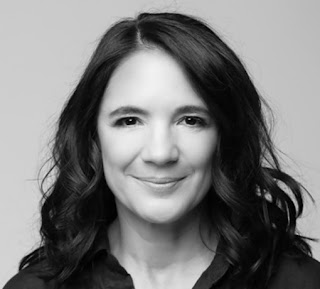Victoria Garza is the author of the new memoir The Field, which focuses on the loss of her sister. Garza is a senior writer for Apple, and she lives in the Bay Area.
Q: What impact did it have on you to write this memoir, and why did you choose to write it?
A: This memoir began as a result of 9/11, or at least that was the inciting
incident that broke me open and propelled me to start writing. I was living in
New York and finishing my graduate degree in film studies at NYU at the time of
that catastrophe. Four months later I moved to Los Angeles and started what
eventually became The Field.
Certainly, the magnitude of that tragedy and the larger cultural ramifications of grief at that scale sent me on a quest inward, to my own personal loss, and helped me unravel and heal wounds that I didn’t even know I needed to heal.
The exercise of writing remained just that, an exercise— for a very long time. I had no intention of writing a book.
As years passed and my manuscript continued to grow, one of my dearest friends, who’s an author, said one day, “You know you have a book here, don’t you?” That was the beginning of my earnest attempt to think about form, the themes or threads that are now interwoven into a non-linear, yet cohesive, story.
It helped that the loss I was experiencing in the present “moment” of the book gifted me with an immediate and punctuated feeling of grief.
Seemingly free-associatively, The Field switches among three narrative threads: (1) my literal journey as the older sister whose present adult life is unraveling, (2) time travel into my working class Mexican American upbringing, and (3) the archeology of memory, a search for the philosophical, spiritual and scientific implications of grief.
Woven together, these threads form an account that is larger than that of my personal loss. Rather, it is a contemplation of time, space, and the disequilibrium all humans experience with the dissolution of life.
Q: The Kirkus Review of the book calls it “An achingly vulnerable, elegantly worded meditation on grief and recovery.” What do you think of that description?
A: This description is accurate and suits the tone of the book quite well. The book is highly contemplative, sometimes reverent, but also funny. I knew the history of the grief memoir and the degree to which I was willing to expose my vulnerabilities is the only way that it would make sense.
Accounts of death have, of course, a rich literary history. I believe my audience is the same audience moved by Joan Didion’s The Year of Magical Thinking, Elisabeth McCracken’s An Exact Replica of a Figment of My Imagination, and the stunning book The Disappearance, by Genevieve Jurgensen, to name the ones that have moved me most.
And these titles are all absolutely perfect in representing what death feels like. They have narratives that while heartbreaking, are also tethered to the page with sobering, non-sentimental honesty. These are qualities I value most in a grief memoir and I hope that people might see them in my work.
Q: How was the book's title chosen, and what does it signify for you?
A: I needed to find that singular word that literally grounded my story, tethered it so that I could explore highly conceptual themes without sounding esoteric. The book title was chosen because it has literal, and well as metaphysical implications to the theme in the book.
The Field is, in fact, a field in Ohio, the location of the accident, but it’s also an energy field, a force field, if you will, where all things collapse unto itself and something else is given the capacity to emerge. This emergence can only happen if there is something lost.
If you have the vocabulary to talk about the intangibles, The Field is that place, that expanse where there is at once emptiness but where all things are possible. Death does that. It opens up space, if you’re willing to sit in the immense discomfort—which often times, kids are better at doing because they haven’t built up serious mechanisms to escape the present moment.
Q: What do you hope readers take away from the book, and how would you describe your sister's legacy?
A: I hope readers take away the notion that death, while painful for everyone around it, can nonetheless be a highly charged opportunity. Our culture, unfortunately, does not talk about death as a part of life. In its separateness, we fail to process it fully, feel it in its entirety and yet, there is an opening there that can enable someone to not only be at peace with it, but to be in awe of it.
I can only speak of my sister’s legacy as it relates to what it offered me, which was deeply rooted in her own inherent relationship to the spiritual realm. She modeled for me what it might be like to live in my heart rather than my head, and as a child, these concepts were readily available to her.
I admired that about her. I don’t think anyone near death wishes they had spent more time “thinking” about things. As a result, I have strong ideas of what I’d like my death to be like, like planning a wedding at your home, I know how I want the scene to be set for my departure.
Q: What are you working on now?
A: I’m working on a project about plant medicine and the implications of physical and spiritual healing through plants, not as crisis intervention, but in connecting the dots between ancestral ritual and modern-day healing.
--Interview with Deborah Kalb


No comments:
Post a Comment